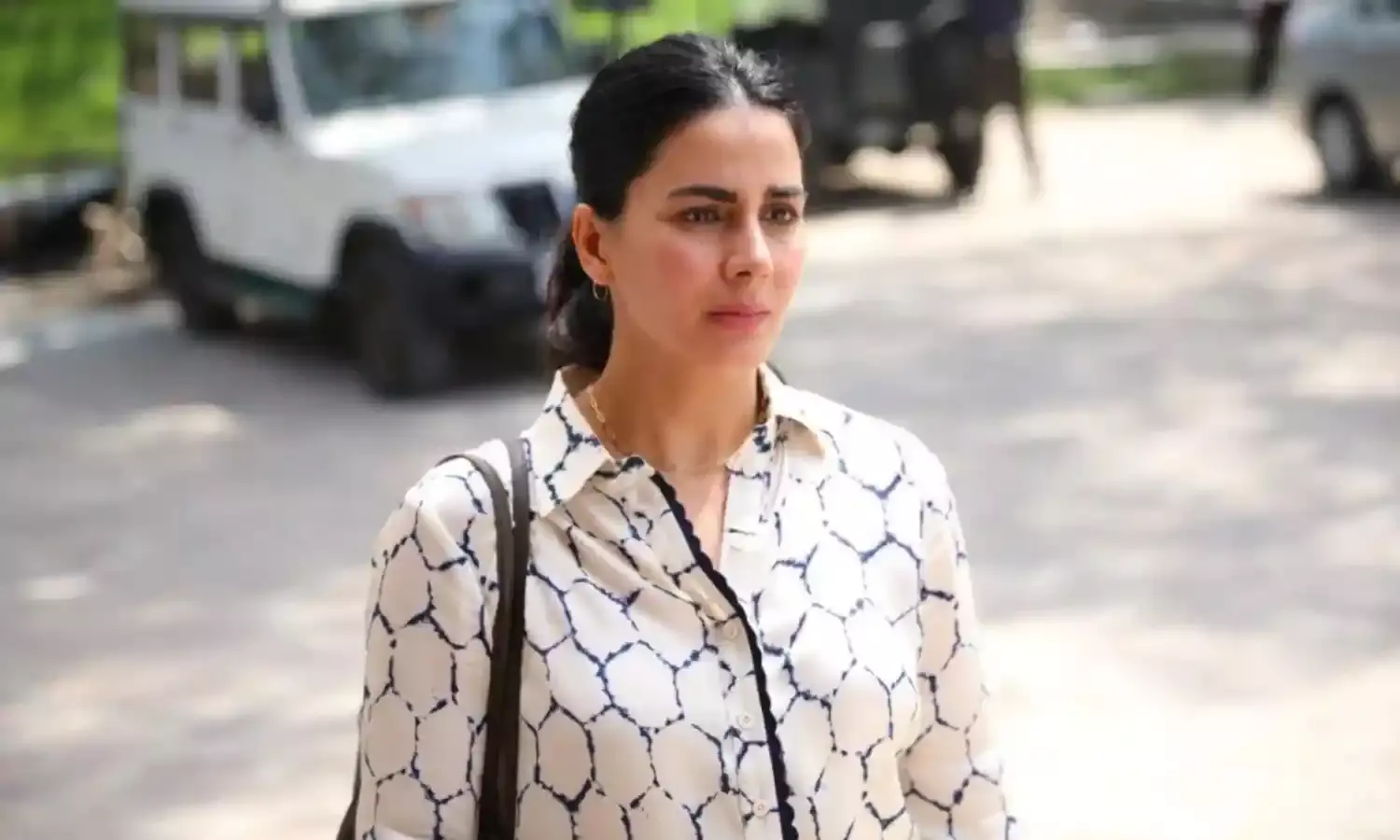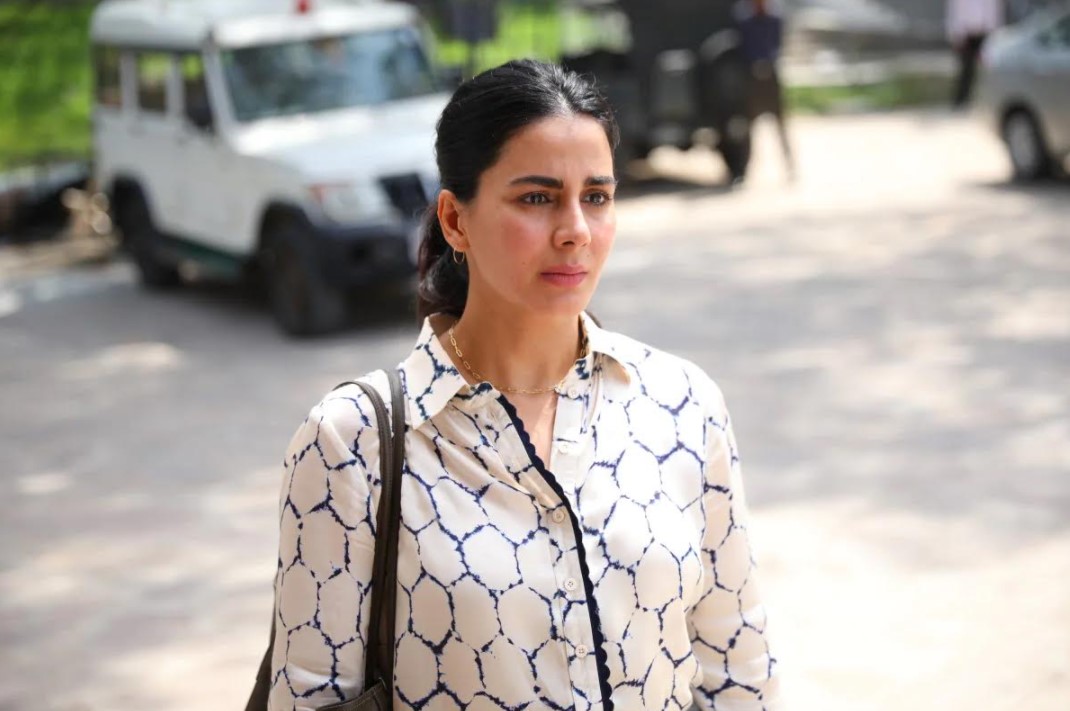HUMAN - Too Much Going On
Review

A medical thriller is too heavy a baggage to carry especially when it spreads its story and characters over ten episodes. Besides, the promotion and publicity that came before its release on Disney-Hotstar were a bit larger-than-life. This is borne out when one actually sits to binge-watch the series, pulled to the attraction of a versatile and powerful actress like Shefali Shah driving the chariot.
The story is all about corruption, merciless murders and underhand dealings within the corporate medical world in Bhopal, already preceded by the unforgettably inhuman tragedy through Union Carbide which killed hundreds of common masses in 1984, many of who are still reeling from the effects of the terrible gas emissions that happened then.
Why did the directors Vipul Shah and Mozez Singh choose Bhopal as the backdrop? It kind of counters the ‘created’ disaster by Union Carbide, doesn’t it? But here we are dealing with medical corruption that ties together a high-profile corporate hospital called Manthan (churning?), headed by the famous Gauri Nath (Shefali Chhaya) who is one of the best neurologists in the country, closely connected to a famous research lab that conducts scientific tests on rats, mice and later on human specimens before releasing a vaccine/medcine for mass consumption.
Gauri lost her parents in the gas tragedy and was brought up by an adoptive father, a famous and affluent doctor which led her to take up medicine as a career.
The series opens with Gauri being bestowed the Humanitarian of the Year Award, and that very day she is joined by a new lady, a heart surgeon, Dr. Saira Sabharwal (Kirti Kulhari) who is charmed by the excellence of this woman in her professional and personal life and the two bond beautifully. Gauri’s husband Pratap Munjan (Ram Kapoor), who is on the board of Manthan and a successful businessman is beside her in all her endeavours.
But as the story unfolds, we get to learn that the two share an ‘open’ marriage where Pratap has a girlfriend on the side while Gauri sleeps around with leading political leaders to get necessary approvals for legitimising illegal activities and lab experiments and the husband does not bat an eyelid. They are also eyeing a children’s park to build a huge, five-star hospital through their financial clout and public image.
Trouble starts when the research lab Vayu Pharma’s head Ashok Vaidya (Abhijeet Srivastava) decides to ‘jump the queue’ of tests and begins to conduct the tests on unsuspecting humans, understandably poor and uneducated. These clandestinely conducted tests begin to show disastrous effects but both the lab and Gauri are okay with this though Ashok Vaidya’s father (Mohan Agashe) is against testing the vaccine on humans without informing them. The “sample” tests are cleverly conducted at ‘camps’ at a public hospital overseen and supervised by Roma Maa, close to Gauri from her childhood.
Trouble begins when a young, unemployed Mangu (Vishal Jethwa) is lured to get his parents tested with the drug for a lot of money. Though there is no effect on his father, his diabetic mother falls seriously ill and dies. Saira smells something is wrong and begins to investigate.
But this is just half the story. There is another sub-plot which offers no logical explanation. It is about a senior ‘nurse’ or, Roma “Ma” (Seema Biswas) who Gauri is very close to, kept in charge of controlling nine very young girls in a home purportedly to look after ‘leprosy patients’. How is it that the families of these nine girls, later joined by another young nurse from the medical camp, are not bothered about their sudden and long absence?
These girls are guinea pigs for Gauri’s experimenting with the brains of the girls by injecting them with a drug that will wipe out all memory. We see them giggling all the time even while torturing the new entrant. Why? No answer. We do not see these girls tending to any leprosy patient. Why are they being subjected to neurological tests to toy with their brains? What is the motive? No answer.
Gauri and Pratap have a son who refuses even to acknowledge his parents and is stuck either to drugs or to his cell phone or the computer. He hates his mother because he feels she loved his brother who died young more than she ever cared for him. Gauri is shown taking injections in secret and so does her Roma Ma. Why? No one knows and I doubt whether the directors know too.
The other sub-plot is a look into the back story of Saira who is no lily-white emblem of purity and honesty. She is completely estranged from her parents because they discovered long ago that their only child is a closeted lesbian. She is married to an investigative photo-journalist (Indraneel Sengupta) who is currently in Afghanistan but comes back for another assignment which Saira is not very happy about.
They have been married for eight years but have no kids because Saira puts her foot down on children. Her husband has no clue that his wife is a lesbian. Why? By the time he learns about it accidentally, it is too late.
According to Joel Shulkin, a doctor who writes medical thrillers, “In a medical thriller, sometimes it is simply a race against the clock to stop a contagious outbreak. But threats arrive in different forms: biological, technological, or forensic.
Finding the answer is a significant part, but the suspense commonly lies in identifying and stopping whoever’s behind the threat. The villain!” The villain in Human is not just one person but a crowd of people if you care to look for them. And they are not ‘punished’ the way the audience would expect. And this brings the series down. Justice remains an evasive ideology in Human.
Shefali Shah as Gauri Nath dominates almost every frame of the series and takes full advantage of this exposure with her wonderfully layered performance which, of course, looking at her track record, is no surprise. However, she is so omnipresent in the film that at times, one begins to suspect that whether Human was made with Shefali Shah in mind or whether it aimed at being a captivating medical thriller.
Gauri is one bundle of confusion and also, clear thinking, of stating that poor people’s lives do not matter though she herself comes of a poverty-stricken background, of brazenly stating how she murdered her foster father and took over his hospital and his practice in cold blood. She has no issues with her husband having a mistress as much as she does not bat an eyelid to sleep with the minister or offer bribes to the CM whenever needed. She takes Saira to a temple within her residential precincts only once so why this scene was written in no one knows.
Gauri shares maximum screen space with her young colleague, Saira and Kirti is in full command of a character built purely on a string of lies she lives on, though she realises very late that the world she has created for herself is fake. Seema Biswas’s look itself spells out her character with its evil connotations.
But one is saddened by the marginalising of Ram Kapoor as Gauri’s husband. Indraneel as Saira’s lving husband is very good and Sandeep Kulkarni, a senior doctor at Manthan, plays a father torn between his son’s mistake and his commitment to Manthan very well. The actor who portrays the head cardiologist Shinde, who is brazenly side-lined by Gauri who places Saira as head is in complete command. Vishal Jethwa as Mangu, who is determined to get to the bottom of his mother’s mysterious death from the test dose she was given, and by the sudden disappearance of the young nurse he liked, is confident, sharp and naïve in turns.
Technically, Human is very good except the script which needed tightening and lesser loopholes and loose ends. The cinematography with blues dominating the scene, is excellent while the art direction follows suit with realistic representations of Mangu’s home and terrace, the narrow and crowded lanes and bylanes of Bhopal (Mumbai?), the middle-class home of Saira’s distraught parents, the posh interiors of Manthan, the dark indoors of the ‘home’ where the girls are held captive, and the incredibly palatial and ornately decorated home of Nath and Munjal.
The editing however, often takes the short cut to overhead shots of the city and its terraces which has no link to the scenario while cutting from one scene to the next. The music is just right on the soundtrack.
The what and who are clear in this series but the how and the why are kept dark till the end. The climax is the easiest answer offered by the director duo perhaps because they could not find a more logical and realistic climax.
It’s the how and the why that remain a mystery till the end. Having been nourished on a steady diet of Robin Cook, Michael Crichton and Stephen King, Human turned out to be a disappointment. Really.




